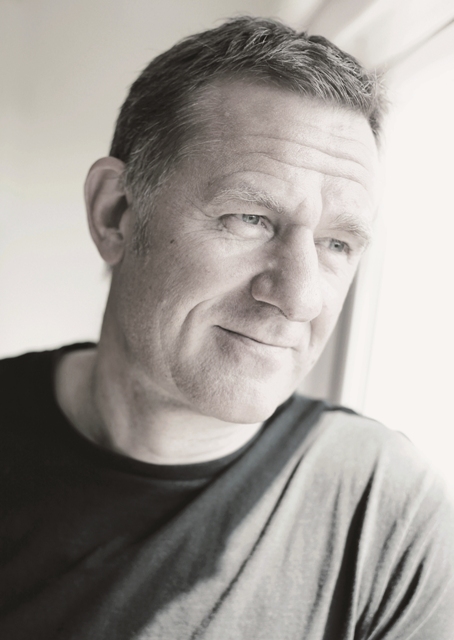 |
| photo: Charlie James |
Graham Joyce is an English writer of speculative fiction and the recipient of many prizes, including the O. Henry Award, for both his novels and short stories. He grew up in a small mining village near Coventry. Joyce quit his executive job in 1988 and moved to a Greek island to write his first novel, Dreamside. He has a Ph.D. in English Literature. He now resides in Leicester with his wife, Suzanne, and their two children. Joyce is also regular first-choice goalkeeper for the England Writers football team. The Ghost in the Electric Blue Suit (Doubleday, August 5, 2014) was published in the U.K. under the title The Year of the Ladybird.
On your nightstand now:
Crackpot Palace by Jeffrey Ford. This is a collection of short stories by one of my favourite American writers. I think it's the fourth collection of his I've read. His work is stuffed full of ideas, humour, invention and inspiration.
Favorite book when you were a child:
Treasure Island by Robert Louis Stevenson, still the best book ever for children. I was fascinated by Long John Silver. He was a bad guy, but you couldn't help warming to him and you wanted him to get away with his crimes. Stevenson taught you how charmers work their magic. "Jim, you're smart as paint, you are." I think it worked as an antidote to magnificent charmers and has served me well in life. This is what great writing should offer: insight and wisdom.
Your top five authors:
William Faulkner, Charles Dickens, Shirley Jackson, Graham Greene, Charlotte Brontë and 50 others.
Book you've faked reading:
Iron in the Soul by Jean-Paul Sartre. A copy protruded neatly from my blazer hip pocket such that the author's name could be clearly seen. I couldn't get past 10 pages it was so dull, but it was important that other people saw that I was an "existentialist," even though I didn't really know what an existentialist was.
Book you've bought for the cover:
Journey to the East by Herman Hesse, protruded neatly from the other hip pocket.
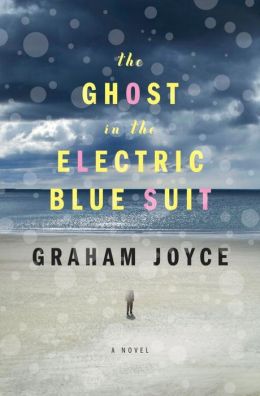 Book you're an evangelist for:
Book you're an evangelist for:
Of Mice and Men by John Steinbeck. Recently, here in the U.K., a cabinet minister has banned Of Mice and Men from the school curriculum, where it has been massively popular with teachers. The minister says he wants "more British literature" in schools. Idiot. Literature in the same language knows no borders. Steinbeck is a giant who wrote an extraordinary book that seems simple at first glance but which has no bottom.
Book that changed your life:
Would be nice and self-serving to say Chekhov or Proust or someone posh, but it wouldn't be true. The work that changed my life and made me want to write was written by a boy on the school bus. I was 15. This lad in the grade above me was waving a sheaf of poems around, and he seemed happy for anyone to take a look. I grabbed them, ready to mock. They were damned good. I thought, "If he's at the same school as me, and on the same bus as me, then maybe I could write, too." So this one is for Gordon, the unpublished boy on the bus.
Favorite line from a book:
That would have to be from Anthony Burgess in his novel Earthly Powers: "It was the afternoon of my eighty-first birthday, and I was in bed with my catamite when Ali announced that the archbishop had come to see me."
Which character you most relate to:
Wilbur Larch, the doctor from The Cider House Rules by John Irving. He was the founder of an orphanage, a deeply compassionate but flawed man.
Book you most want to read again for the first time:
Travels with My Aunt by Graham Greene. Greene had this notion that he could divide his books between "serious" and "entertainments." This book confirms that his "entertainments" are just as good if not better than his serious stuff. It's a riot.
Book you wish you had written:
The Name of the Rose by Umberto Eco. A perfect integration of so-called "genre" and "literary" values. It's a masterpiece.
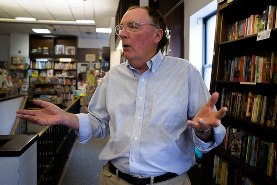 "I, Jeff Bezos, was a physics student at one point and I assure you I understand principles this basic.
"I, Jeff Bezos, was a physics student at one point and I assure you I understand principles this basic.




IPC.0204.S3.INDIEPRESSMONTHCONTEST.gif)




 The sale of Perseus Books Group to Hachette Book Group and Ingram Content Group has been called off. "Despite much effort from all three parties, we could not reach agreement on everything necessary to close the transaction," Perseus CEO David Steinberger said in an e-mail to employees.
The sale of Perseus Books Group to Hachette Book Group and Ingram Content Group has been called off. "Despite much effort from all three parties, we could not reach agreement on everything necessary to close the transaction," Perseus CEO David Steinberger said in an e-mail to employees.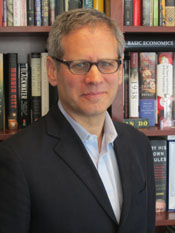


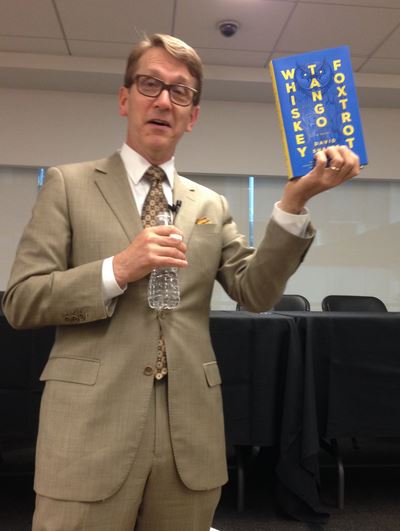
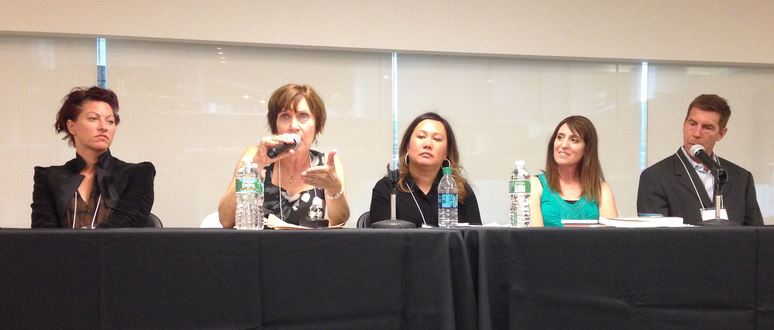
IPC.0211.T4.INDIEPRESSMONTH.gif)

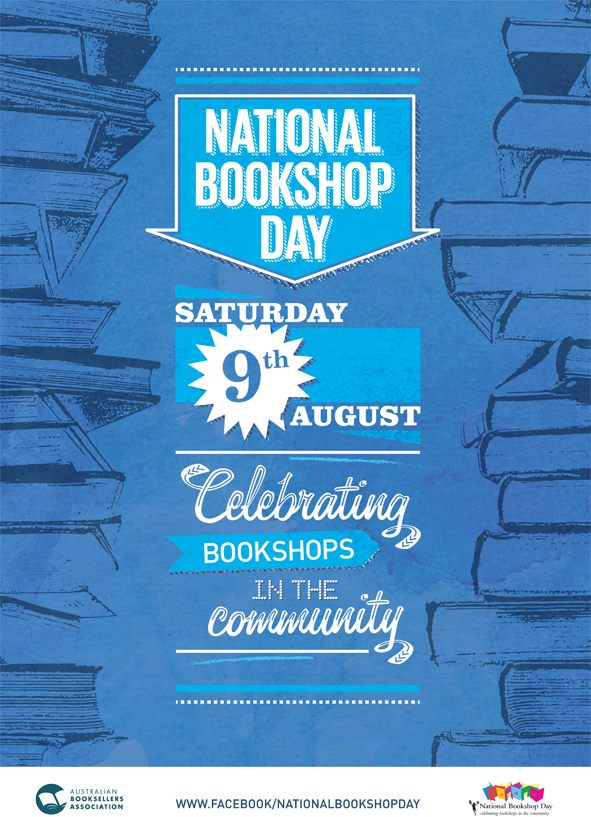 On Saturday, the
On Saturday, the 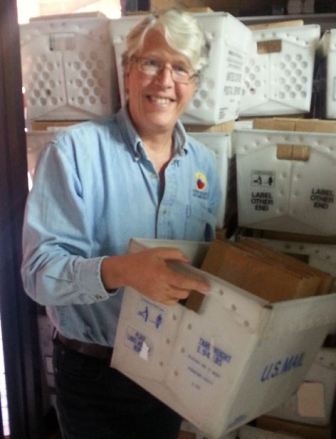
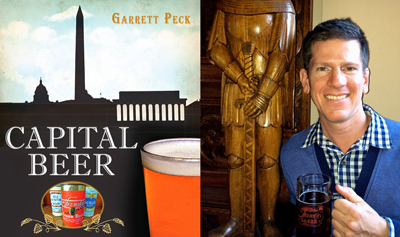 On Saturday, August 23, 1-4 p.m., Garrett Peck, author of Capital Beer: A Heady History of Brewing in Washington, D.C. and Prohibition in Washington D.C.: How Dry We Weren't (both from History Press), is leading a
On Saturday, August 23, 1-4 p.m., Garrett Peck, author of Capital Beer: A Heady History of Brewing in Washington, D.C. and Prohibition in Washington D.C.: How Dry We Weren't (both from History Press), is leading a 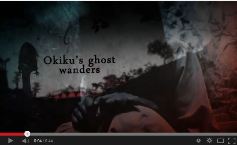 The Girl from the Well
The Girl from the Well
 Book you're an evangelist for:
Book you're an evangelist for: 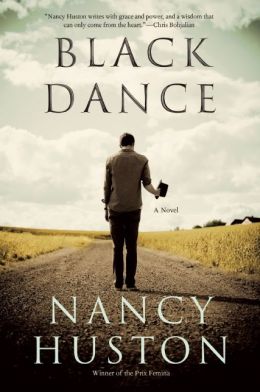 Black Dance is one of those novels that leads with a family tree. Surprisingly, this one features only 14 names, though it covers four generations of Irish Catholic Canadian immigrants. It is the story of Milo Noirlac, a screenwriter dying of HIV/AIDS, whose partner (both professional and personal), film director Paul Schwartz, is at his side attempting to pull Milo's life story into one last screenplay. Ever the practical director, Schwartz tries to rein in Milo's wandering narrative, reminding him that "we can't afford storywise to follow every little branch down to the smallest leaf and twig... bore them stiff with stuff like Last Year at Marienbad." The truncated family tree is Schwartz's work, adhering to "film's guiding principle--always follow one of the three main protagonists."
Black Dance is one of those novels that leads with a family tree. Surprisingly, this one features only 14 names, though it covers four generations of Irish Catholic Canadian immigrants. It is the story of Milo Noirlac, a screenwriter dying of HIV/AIDS, whose partner (both professional and personal), film director Paul Schwartz, is at his side attempting to pull Milo's life story into one last screenplay. Ever the practical director, Schwartz tries to rein in Milo's wandering narrative, reminding him that "we can't afford storywise to follow every little branch down to the smallest leaf and twig... bore them stiff with stuff like Last Year at Marienbad." The truncated family tree is Schwartz's work, adhering to "film's guiding principle--always follow one of the three main protagonists."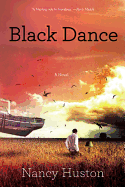
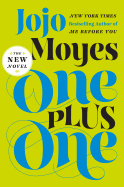 More recently, Barker shared her "personal beach bag of books for this summer: One Plus One by JoJo Moyes, My Family & Other Hazards by June Melby (we're heading for Wisconsin, and mini-golf is a must on our vacations.), Big Little Lies by Liane Moriarty, The Mockingbird Next Door: My Life with Harper Lee by Marja Mills, Positive by Paige Rawl with Ali Benjamin. And my guilty-pleasure read: Having finally read Still Life by Louise Penny not long ago, I am really looking forward to the new Three Pines mystery (The Long Way Home) featuring Inspector Gamache. I have no trouble coming up with palate cleansers!"
More recently, Barker shared her "personal beach bag of books for this summer: One Plus One by JoJo Moyes, My Family & Other Hazards by June Melby (we're heading for Wisconsin, and mini-golf is a must on our vacations.), Big Little Lies by Liane Moriarty, The Mockingbird Next Door: My Life with Harper Lee by Marja Mills, Positive by Paige Rawl with Ali Benjamin. And my guilty-pleasure read: Having finally read Still Life by Louise Penny not long ago, I am really looking forward to the new Three Pines mystery (The Long Way Home) featuring Inspector Gamache. I have no trouble coming up with palate cleansers!"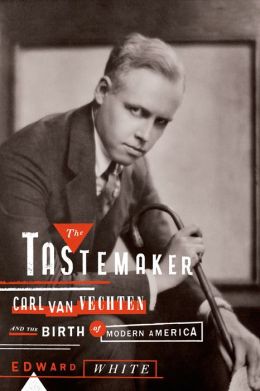 Some booksellers told me they had focused on a particular genre this summer. For Sarah Bagby of
Some booksellers told me they had focused on a particular genre this summer. For Sarah Bagby of 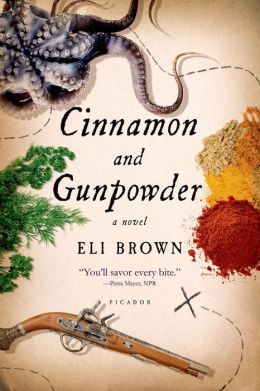 The book Karen Bakshoian of
The book Karen Bakshoian of 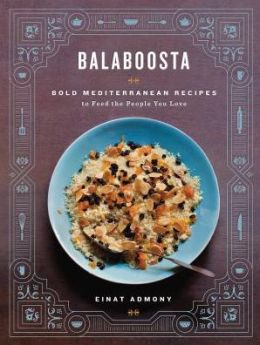 "I've not actually made it to the beach this year, but I do have some time in the N.C. mountains coming up. Here's what I plan to bring: I'm going to re-read Jonathan Lethem's Motherless Brooklyn. I love to read cookbooks; weekend morning coffee is best spent on the porch with my cat and a stack of sticky notes reading a cookbook and marking future meals. I've not had many free weekend mornings this year, so I have set aside some cookbooks to take with me on vacation, among them Joe Yonan's Eat Your Vegetables and Einat Admony's Balaboosta. Margot Livesey read with us several years ago for her novel The Flight of Gemma Hardy and I've never been able to get her writing out of my head, so I've procured myself a copy of Eva Moves the Furniture and look forward to reading it. And Graham Joyce's Some Kind of Fairy Tale--I read the galley for his upcoming novel The Ghost in the Electric Blue Suit and instantly realized I'd been missing out on something special."
"I've not actually made it to the beach this year, but I do have some time in the N.C. mountains coming up. Here's what I plan to bring: I'm going to re-read Jonathan Lethem's Motherless Brooklyn. I love to read cookbooks; weekend morning coffee is best spent on the porch with my cat and a stack of sticky notes reading a cookbook and marking future meals. I've not had many free weekend mornings this year, so I have set aside some cookbooks to take with me on vacation, among them Joe Yonan's Eat Your Vegetables and Einat Admony's Balaboosta. Margot Livesey read with us several years ago for her novel The Flight of Gemma Hardy and I've never been able to get her writing out of my head, so I've procured myself a copy of Eva Moves the Furniture and look forward to reading it. And Graham Joyce's Some Kind of Fairy Tale--I read the galley for his upcoming novel The Ghost in the Electric Blue Suit and instantly realized I'd been missing out on something special."